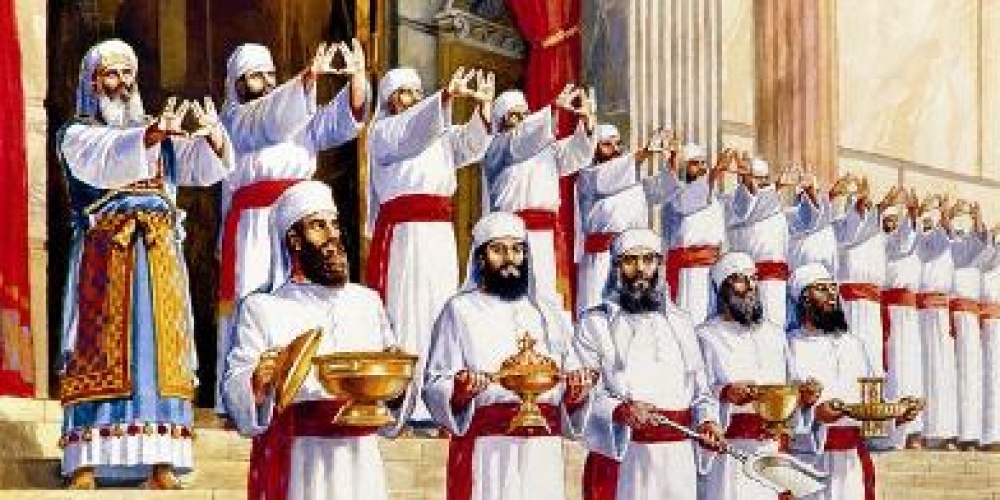
Being a kohen today is not what it used to be. While one may receive more aliyot and lead birchat hamazon on a regular basis, a kohen is bound by the many restrictions of the Torah without "reaping its benefits". There are strict restrictions on whom they may marry and whom they may bury. This, despite the fact that there is no Temple for them to work in, no sacrifices to bring, no regal clothes to wear, and no special food to eat.
A kohen who was a ba'al mum, who had some kind of blemish disqualifying him from work in the Beit Hamikdash, nonetheless had to observe all the restrictions incumbent on the kohen. Apparently, the prohibition of coming in contact with death, of tumah, is unconnected to the Temple. Rather, it stems from a more fundamental role of the kohen, that of teachers of Torah. "For the lips of the kohen should safeguard knowledge and [people] should seek Torah from his mouth, for he is like an angel of the God of Hosts" (Malachi 2:7).
Our Torah is a Torat chayim, a book of life, focusing on the here and now of this world. The Torah tells us nothing about the afterlife or even the Messianic Era. Our task is to ensure that the world we inhabit today is a little bit better because of us. We focus on helping those in need, not in justifying G-d's allowance of suffering in the world. We focus on the living; thus, death and Torah are incompatible.
The kohen as the teacher of Torah must avoid contact with death. His headquarters are the Temple grounds, the place where the divine presence is most manifest. Death is tragic, defiling, and distances us from G-d. Death robs us of the opportunity to observe mitzvoth meant for this world; it robs us of a chance to gain further immortality. A mourner may not study Torah, the eternal book of life. With death, a piece of Torah has been lost forever. Furthermore, a person created in the image of G-d is no longer, and thus, kvayachol, a part of G-d has been lost.
Yet death is inevitable, and even the kohen must mourn for his immediate family and leave the confines of the Temple. Only the kohen gadol about whom we are told, "and from the Temple he shall not leave" (Vayikra, 21:13), may not defile himself even for an immediate family member. He represents the nation and it is he who attempts to atone for the sins of the entire nation on Yom Kippur.
And while all individuals die, the Jewish nation is indestructible. "The eternity of the Jewish people will not be denied" (1 Shmuel 15:29). The Jewish people are not susceptible to the impurity of death.
After describing the laws relating to the kohanim, the Torah details the laws relating to the five biblical holidays. The yamim tovim signify the eternity of the Jewish people, our defiance of the natural laws of history, and of the special relationship between G-d and the Jewish people. We have survived will continue to prosper and will not cease to inspire until all hear the message of a moral G-d.
"And you shall be for Me a kingdom of priests and a holy nation". While only biological kohanim could work in the Temple, all of us, with or without a Temple, must adopt the role of kohanim. We must strive to teach Torah, serve others, and--following in the footsteps of Aharon, the first kohen gadol--we must "love peace and seek peace".



